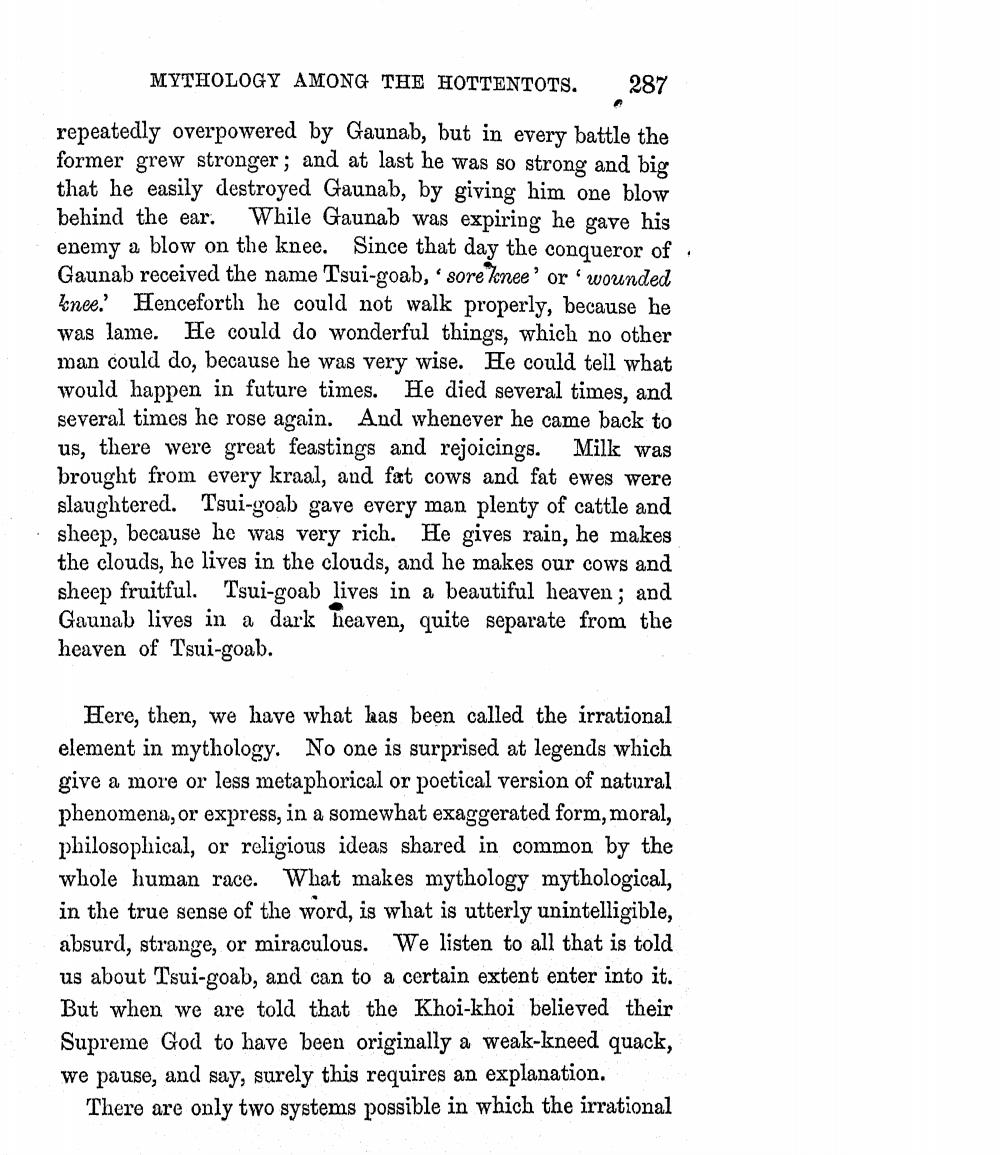________________
MYTHOLOGY AMONG THE HOTTENTOTS.
287
repeatedly overpowered by Gaunab, but in every battle the former grew stronger; and at last he was so strong and big that he easily destroyed Gaunab, by giving him one blow behind the ear. While Gaunab was expiring he gave his enemy a blow on the knee. Since that day the conqueror of Gaunab received the name Tsui-goab, sore knee' or 'wounded knee.' Henceforth he could not walk properly, because he was lame. He could do wonderful things, which no other man could do, because he was very wise. He could tell what would happen in future times. He died several times, and several times he rose again. And whenever he came back to us, there were great feastings and rejoicings. Milk was brought from every kraal, and fat cows and fat ewes were slaughtered. Tsui-goab gave every man plenty of cattle and sheep, because he was very rich. He gives rain, he makes the clouds, he lives in the clouds, and he makes our cows and sheep fruitful. Tsui-goab lives in a beautiful heaven; and Gaunab lives in a dark heaven, quite separate from the heaven of Tsui-goab.
Here, then, we have what has been called the irrational element in mythology. No one is surprised at legends which give a more or less metaphorical or poetical version of natural phenomena, or express, in a somewhat exaggerated form, moral, philosophical, or religious ideas shared in common by the whole human race. What makes mythology mythological, in the true sense of the word, is what is utterly unintelligible, absurd, strange, or miraculous. We listen to all that is told. us about Tsui-goab, and can to a certain extent enter into it. But when we are told that the Khoi-khoi believed their Supreme God to have been originally a weak-kneed quack, we pause, and say, surely this requires an explanation.
There are only two systems possible in which the irrational




